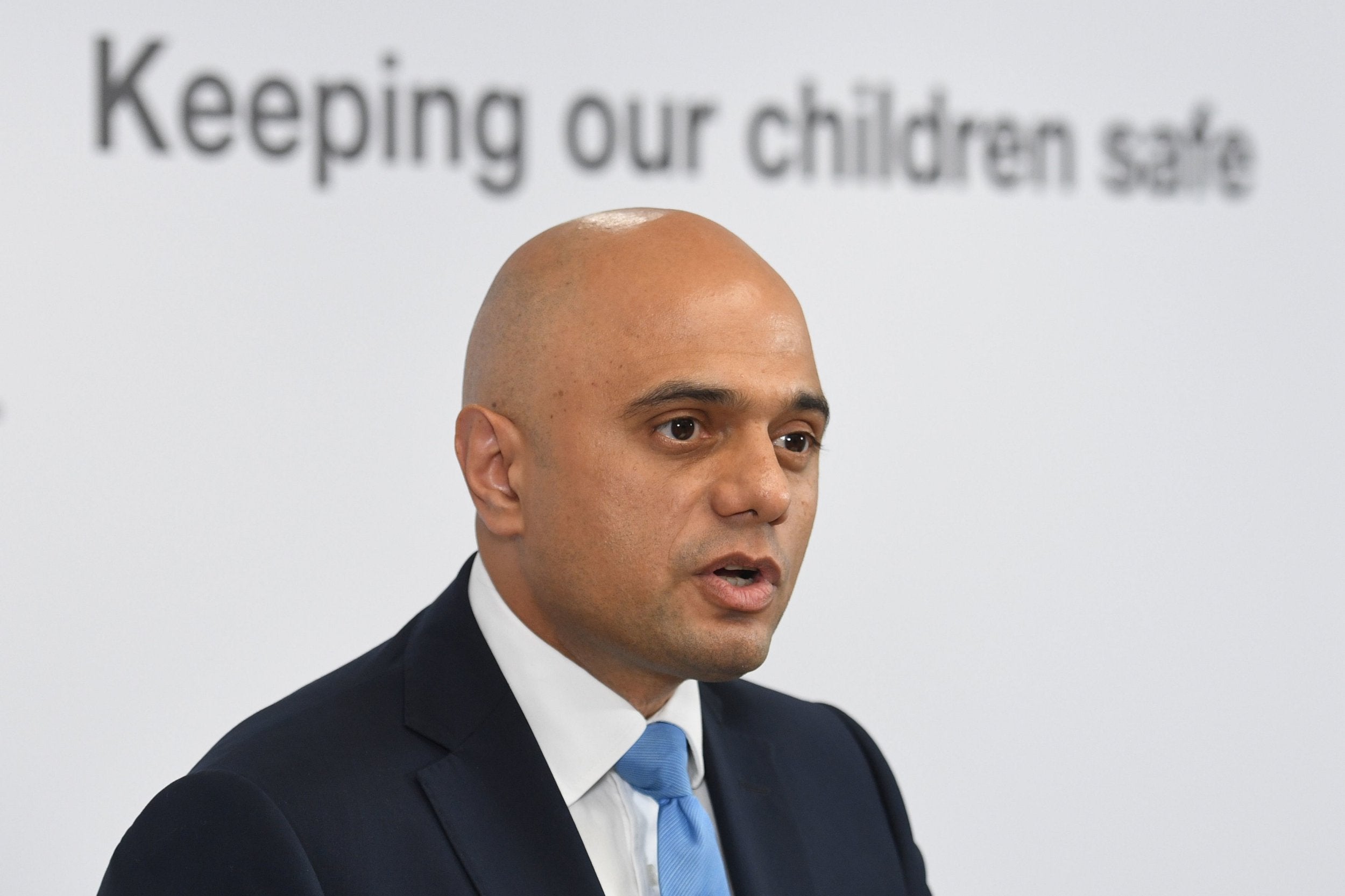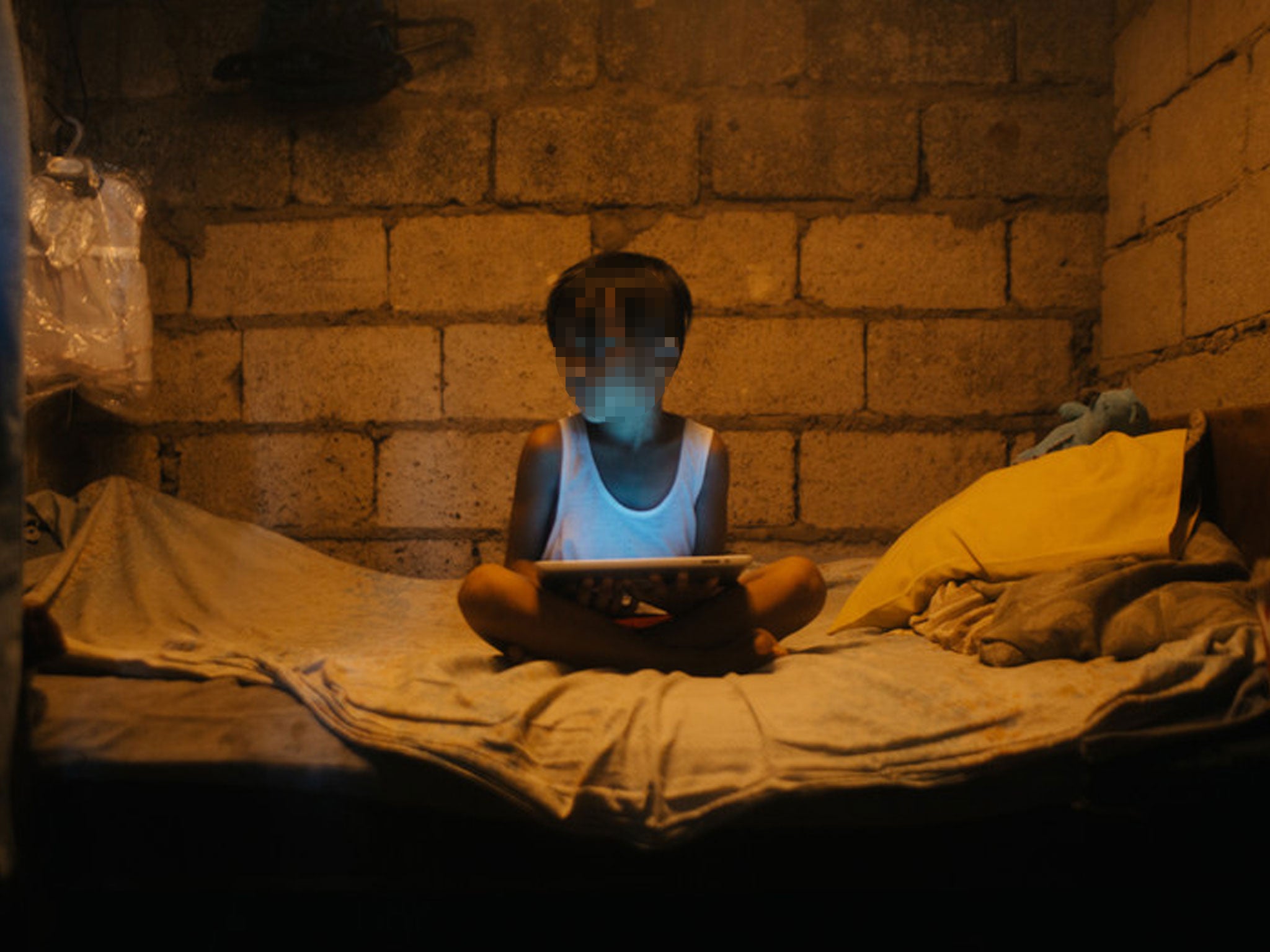Tech companies must crack down on child sex abuse or face new laws, Sajid Javid warns
Home secretary wants to see 'same level of commitment' as web giants have shown against terrorist propaganda
Web giants will be regulated if they fail to stop paedophiles using their platforms to abuse children and share indecent images, the home secretary has warned.
Sajid Javid called on technology firms to treat child sex abuse images with the same severity as terrorist propaganda to crack down on the “horrific” content.
“A lot has been achieved in the counter-terrorism space,” he said. “Now I want to see the same level of commitment for child sexual exploitation.”
More child sex abuse images are being discovered online than ever before and the National Crime Agency (NCA) estimates that 80,000 people pose a sexual threat to children online in the UK.
Teachers, a children’s entertainer and a former police officer were among 131 people arrested on suspicion of online child sex offences as part of a week-long crackdown by the NCA and police forces across the country.
The home secretary threatened the prospect of new laws if sufficient action was not taken to stop platforms being used to groom, blackmail and abuse victims.
“The reality is that the threat has evolved quicker than the industry’s response … there are some companies out there that refused to take this seriously,” Mr Javid said in a speech at the NSPCC’s London headquarters.
“If web giants do not take more measures to remove this type of content from their platforms, then I won’t be afraid to take action. How far we legislate will be informed by the action and attitude that the industry takes.”
Mr Javid did not detail the kind of laws that could be brought in as part of a white paper being drawn up by the government.

But he insisted he was not calling for new “surveillance techniques” and said social media companies already possessed tools to spot suspicious behaviour using machine learning and artificial intelligence.
The home secretary also announced an extra £21.5m in funding for law enforcement to track down the most dangerous offenders and £2.6m for prevention work to stop people viewing child sex abuse images.
The NCA, which has seen a 700 per cent rise in the number of child sex abuse image referrals of the past five years, previously called on technology companies to stop paedophiles being able to upload them as part of a “fundamentally recalibrated approach”.
“Investigators are facing a constant uphill struggle because of the significant numbers of offenders committing preventable crimes, such as viewing and sharing images and videos that are easily accessible online,” said Lynne Owens, director general of the NCA.
“The technology exists for industry to design out these offences and stop this material from being viewed … we want industry to invest in preventing these online offences from happening in the first place.”
Last year, senior police officers called for a “big discussion” over alternatives to criminal prosecution to deal with the huge volume of sex offenders arrested for viewing indecent images.
Some have proposed giving paedophiles who view images online compulsory counselling and rehabilitation programmes, rather than prison sentences, to ease pressure on the justice system.
When asked whether British law enforcement could realistically pursue thousands of offenders – with around 400 suspects currently being arrested every month – Mr Javid said the NCA was doing an “excellent job” and had been given more resources and extra funding.
Around a third of indecent images of children are “self-generated” by under-18s filming or photographing themselves and either sharing them with friends or online.

But there is mounting concern over the industry growing around encrypted livestreams, watched by thousands of people in the UK, where children are abused abroad for paying paedophiles.
Limited research has indicated that people may be led to child sex abuse images from adult pornography websites, and 30 per cent of suspects arrested over indecent images in the UK are themselves under 18.
The NSPCC is among the charities calling for the creation of an independent regulator with powers to investigate and fine platforms which do not do enough to catch groomers.
Tony Stower, head of child safety online at the NSPCC, said: “These firms have been told time and again to play their part in stopping online child abuse, but have done very little.
“Conversation and encouragement is not enough, the government must now force social networks to tackle the problem blighting their sites and that means changing the law.”
Google said it has a zero-tolerance approach to child sexual abuse material and has invested in technology, teams and partnerships to tackle the issue over two decades.
The firm announced that it was making available “cutting-edge” artificial intelligence that can dramatically improve how charities and other technology companies review content and protect children.
A Microsoft spokesperson said the company was working closely with others firms, government and civil society to create tools to protect children online and help bring perpetrators to justice.
Twitter said: ”We have a zero-tolerance approach to child sexual exploitation on our service. We detect and remove violative content using purpose-built, industry-leading technology, and immediately report it to the authorities.
“We are actively engaged with the police, thought leaders, academics, and NGOs to augment our approach.”
Mr Javid has also launched an inquiry into the potential “cultural drivers” behind grooming gangs.
“We’ve witnessed horrendous abuse perpetrated by gangs who have been persistent and determined in places like Rotherham, Rochdale, Oxford, Newcastle and Telford,” the home secretary said.
“I will ask difficult questions about the gangs who sexually abuse our children. There will be no no-go areas of inquiry. I will not let cultural or political sensitivities get in the way of understanding the problem and doing something about it.”
Mr Javid said that perpetrators convicted in high-profile cases have been “disproportionately from a Pakistani background”, adding: “I have instructed my officials to explore the particular context and characteristics of these types of gangs and if the evidence suggests that there are cultural factors that may be driving this type of offending, then I will take action.”
The speech came amid numerous ongoing criminal investigations into child sexual exploitation across Britain.
Police have warned of the existence of several different “models” of grooming, including online, through personal relationships and using drink and drugs.
One senior officer previously told The Independent that grooming was taking place “in towns and cities up and down the country”.
Chief constable Simon Bailey, the National Police Chief’s Council lead for child protection, previously said much of the current abuse was associated with “county lines” drug dealing, adding: “The ‘Muslim grooming gangs’ are just one model of child sexual exploitation and not the most prolific.”
Investigations have found offenders from a wide range of backgrounds, and not all convicts in high-profile cases have been Asian, while not all of their victims were white.
Grooming gangs came into national focus following the scandal in Rotherham, where an ongoing investigation by the NCA has identified more than 1,500 potential victims.
Bookmark popover
Removed from bookmarks